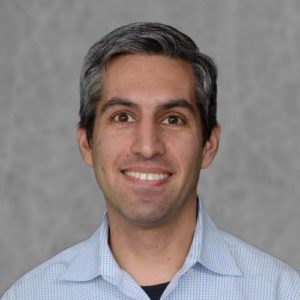
The Digest recently interviewed Carlos Goller, a faculty member in biotechnology, who is the first NC State faculty member to complete the Foundations of Cultural Competence Certification offered by the Office for Institutional Equity and Diversity. Read the interview to find out what he has to say about the three training modules that comprise the certificate.
Diversity Digest: What is your role at NC State and how long you have been at the university?
 Carlos Goller: I have been at the university since July 2012. I was first a teaching postdoctoral scholar in the Biotechnology Program (BIT) and was then able to stay as faculty in the Department of Biological Sciences but teaching in the Biotechnology Program (since 2015).
Carlos Goller: I have been at the university since July 2012. I was first a teaching postdoctoral scholar in the Biotechnology Program (BIT) and was then able to stay as faculty in the Department of Biological Sciences but teaching in the Biotechnology Program (since 2015).
Diversity Digest: How did you learn about the Foundations of Cultural Competence and Inclusivity Certificate for faculty?
Carlos Goller: I believe I learned about the certificate from an email and then an OIED workshop.
Diversity Digest: When did you take the three modules?
Carlos Goller: I took the modules in the spring semester (CQ workshop) and over the summer took the DiversityEdu module.
Diversity Digest: Do you feel the time spent was worthwhile?
Carlos Goller: It was definitely time well spent and has helped me identify strategies and cultural competencies. Importantly, it has made me aware of microaggressions and ways to improve our community.
Diversity Digest: How would you rate each of the three modules? Which one was your favorite, and why?
Carlos Goller: Each of the modules was very different and useful. The DiversityEdu was self-paced, really engaging, and had great examples. The CQ assessment helped me reflect on my personality and interactions with others. The Building Cultural Competence module helped me meet new people and discuss sensitive but important topics. The CQ workshop was my favorite!
Diversity Digest: What benefits do you anticipate as more faculty complete this certification, and why do you feel it is important for faculty to take these courses?
Carlos Goller: The certification provides training and exposure to situations, practices and resources that otherwise would be hard to find. It is important for faculty to reflect on their cultural competence and interactions with others. The certification provides structured training. For faculty, this certification also shows you are proactively trying to successfully interact with people of different backgrounds and be aware of differences in experience.
Diversity Digest: Please share any other thoughts you may have about this program that might be helpful for NC State faculty members.
Carlos Goller: We are lucky to have fantastic staff and faculty on this wonderful and large campus. Learning from others often requires learning about how we interact with those who have different life experiences to take full advantage of the diverse campus community. I feel privileged to have had the opportunity to take this and other professional development training opportunities that aim to improve my contributions to our community.
How to Register
- Faculty can register for the certificate or any of the three training modules in the Reporter system.